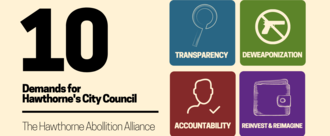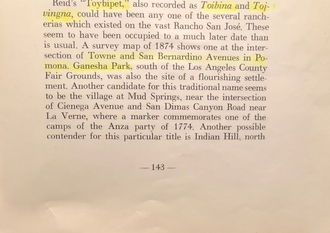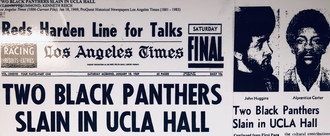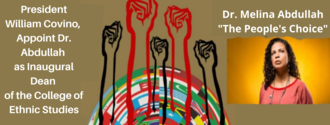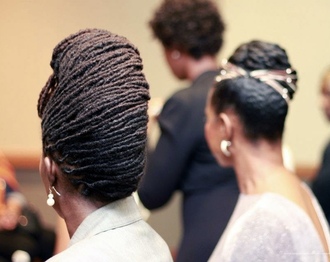- Featured
- Afropunk Army
- Community Control
- Confederate Symbols
- Cop Watch
- Corporate Accountability
- Criminal Justice Policy
- Drop/Bring Charges
- Economic Justice
- Education
- Employment Discrimination
- End The War on Black People
- Environmental Justice
- For-Profit Colleges/Universities
- Gulf Coast
- Housing Rights
- Immigration
- Invest-Divest
- Media Accountability
- Music Industry
- No Guns in Schools
- Open Internet
- Police Accountability
- Political Power
- Pop Culture
- Private Prisons
- Reparations
- Reproductive Justice
- Right Wing Racism
- School-to-Prison Pipeline
- Sports
- Voting Rights
- Wrongful Imprisonment
- More
-
STOP DIRTY S.F. CITY ATTORNEY TAKING $25mm from Black Landlordin the past, BLACKS could NOT own Property. Then, when the laws appeared to change, the BANKS RED-LINED Ownership. Now - the City Governments are Creating FALSE CASES to take BLACK PROPERTY OWNERS and ILLEGALLY TAKING their Properties. In the case of Ms. Kihagi, the smear campaign that represented her as Black Slumlord is so far from the truth. Yet - knowing most people would NOT get past that PR Machine - the City derailed the Truth. The San Francisco City Attorney made more than 20 misrepresentations to the Court with full knowledge of the actual facts. This is total abuse of power - and should be stopped! In fact, the TRUE MOTIVE for such conduct was to RACIAL DERAIL a successful, black landlord. More than $25million is at stake. It is clear that the 2 major cases in San Francisco have been against successful, BLACK Landlords - is this a Coincidence? They spent over 70% of their resources fighting one lone, black landlord and lied to the public that she was a slumlord. Yet the BUILDINGS are in better condition than 90% of S.F. Condo. EYES DON'T LIE. STOP DIRTY CITY ATTORNEYS - see more articles at annekihagisf.com620 of 800 SignaturesCreated by DIRTY LEGAL System
-
I could lose my scholarshipOn September 25th, I, Ashanti Scott, along with my mother, Representative Attica Scott, Shameka Parrish-Wright, and other protestors and students were wrongfully arrested. We were arrested while seeking refuge in a nearby church after protesting the immense injustice served in Breonna Taylor’s case. Not only were we grossly overcharged, but we were inexcusably and wrongfully arrested. My mother, a fierce advocate who so believed in justice for Breonna Taylor that she wrote and introduced Breonna’s Law to curb unlawful entry and criminalization. As a result, she was targeted by the Louisville Police Department and so was I in a retributive attempt for justice. As a result, we have been facing a Class D felony among other misdemeanors - charges that have threatened my scholarship and financial aid. As a University of Louisville student, I am so appreciative of fellow students and the student government association standing by me, my family, and the other advocates. Because of their support, yesterday, we received news that the Class D felony charges were dropped -- but the misdemeanor charges were not. More still needs to be done and I need your support in ensuring I don’t lose my ability to continue my studies. Therefore, I not only demand all charges against my fellow students, elected representatives, and other protestors are dropped immediately; but that the University of Louisville understands the bogus nature of these charges and allows me to retain my higher education funding. As you stand with me in this fight to honor Breonna Taylor’s life and achieve racial equity in our community, please know that I appreciate not having to carry this burden of wrongful felony charges alone. Please let the University of Louisville know that it has the opportunity to stand on the right side of this moment by allowing me to continue my studies.2,002 of 3,000 SignaturesCreated by Ashanti Scott
-
Abolish Greek Life at Washington University in St.LouisGreek life is beyond repair. Abolition is the only option for a system that was designed to exclude. As students, it is our responsibility to dismantle systemic injustice as it presents itself on the campus we call home. - Racism Greek life is inextricably tied to racism. Through a lack of diversity, exclusion, tokenism, and performative allyship, Greek life amplifies privilege and perpetuates disadvantages for marginalized people. As an institution with a history of racial exclusion, it is the epicenter of segregation and institutionalized racism on campus. - Exclusion Greek life is exclusionary. In the recruitment process in most chapters, legacies are asked back after the first day no matter what, giving them an upper hand. Legacies being boosted each cycle creates an environment that excludes everyone else. Historically, fraternities and sororities have been very white spaces, so most legacies tend to be white. Greek life lacks diversity. The exclusivity of greek life combined with the high retention rates of legacies create an environment that excludes new types of members. This is a problem because there has been a lack of support when issues are brought up by BIPOC members. - Tokenism Many WPA and IFC chapters tokenize BIPOCs. Using them on their promotional materials and social media, expecting them to speak for all marginalized people. Yet letting their expression of negative personal experiences fall on deaf ears. Placing the onus on a few marginalized members to speak for the group is especially problematic when they are used as tokens. - Performative Allyship Many efforts to reform Greek life have been performative. The recent activity surrounding Black Lives Matter is a good example. Part of the reason why reform is not possible is that most efforts will be used for optics instead of real systemic change. - Patriarchy Greek life is an institution that, by design, perpetuates the patriarchy and hinders our institution and society from being liberated from patriarchal ideals. Sexism, misogyny, homophobia, and rape culture are all facilitated and promoted within these social structures. - Sexism and Misogyny Greek life is sexist and misogynistic. Houses are only awarded to fraternities on campus and create an unbalanced social dynamic favoring cis-gendered men. Their space is dictated by their rules. The rules are not the same between fraternities and sororities, and they are reinforced by binary gender norms on both sides. In the past, sororities have tried to mix with each other, but because there aren’t houses for sororities, sorority members have had to depend on the spaces fraternities provide. - Heteronormativity and Transphobia Greek life is heteronormative and transphobic. Greek life isn’t always accepting of LGBTQIA+ people. Public displays of affection, whether at a mixer or a formal, that aren’t between heterosexual couples aren’t made to feel comfortable by many peers. Students often don’t feel like they are safe to simply show their affection when it is “normal” and accepted for heterosexual couples to do so. Transphobia is perpetuated through cissexism leading to harmful gender norms with the inherent exclusion of non-binary people. There isn’t a welcoming environment for trans folx to begin with. - Rape Culture Greek life promotes rape culture. Greek life is an environment in which rape is prevalent and in which sexual violence (against women) is normalized. Many efforts to prevent sexual violence haven’t led to any significant changes. The burden has been heavily placed on sororities to address this problem. For example, requiring sororities to have sober contacts to hold frat brothers accountable. Women have to monitor and keep track of which fraternities to avoid due to higher incidences of assault and/or violence. These issues are not new. These issues have been “addressed” time and time again. The problem has not changed because the existence of Greek life is the problem. No amount of reform or education can fix a system that was designed to benefit from these forms of discrimination. - Socioeconomic Exclusion Dues are how students maintain membership in their chapters. They are incredibly expensive (ranging from $400-$800 a semester). There aren’t nearly enough scholarships, opportunities, or payment plans put in place by fraternity and sorority chapters for students who can't afford dues to feel welcome. Having economic barriers for entry like this contributes to upholding classism within greek life. Part of sororities dues finances their chapters suites in the Women's building, which makes that building exclusionary. In addition to dues, many chapters require students to pay for miscellaneous items in large volumes that impact their experience in the chapter. Abolition isn’t about tearing something down. It’s about building something better to take its place. We want to see a new social system for our campus, one that reflects all of the students that are a part of our community. We want to assemble a team of students to reimagine social life after abolition. We want more funding and focus on clubs and other organizations that already struggle to get the support they need and deserve. We want to protect multicultural organizations due to marginalized groups being historically excluded. We want the university to stop encouraging student leaders to promote Greek life. There are other social systems in place that can be encouraged: ResColleges, other clubs/organizations, etc. We need statements of accountability from individual chapters after they disband or disaffiliate. If they are not able to disband or disaffiliate, they should mass deactivate to stand in solidarity with the Abolition movement. Washington University must hold the demands and wishes of students above the charters of individual chapters. Abolition is an example of the change we want to see in our larger society.930 of 1,000 SignaturesCreated by No Pride in Genocide STL
-
Defund Hawthorne Police DepartmentIn Hawthorne, California the police department takes 52% of the city budget. This means that the officers who do not live in our city take their average salary of $111,000/year, buy property in a whiter and wealthier neighboring city, and subsequently add more funding to the schools that already have the most resources. It is our personal responsibility to refuse enabling Hawthorne Police Department's violence through most of our city's funding. We must demand our city officials to invest in Hawthorne residents by defunding the police. Example(s): It was June 7th 2019 that a viral video brought disgrace- once again- to Hawthorne Police Department. On Prairie and El Segundo, across from Memorial Park where families gather and children play- almost a dozen officers draw their weapons on a young Black 24 year old. The brave woman livestreaming the traumatizing arrest sobs as she begs them not to shoot- and the nation, and our community, felt her pain and fear. That he could be anyone’s father, son, brother or friend, but as a Black man in America, he was a target of the oppressive forces of policing. We will never know what would have happened if she was not there, but one thing is certain. This type of escalation for someone Hawthorne Police admitted, “loosely matched” the description of an individual, was definitively not an isolated occurrence- but a product of a city, and country, that enables and militarizes first responders and rarely holds them accountable for the terror they wreak on BIPOC living in the communities they police. We encourage residents of Hawthorne to dig into the 2007 beating, and HPD’s fascination with shooting dogs. It is our personal responsibility to refuse to enable any more sociopathic behavior from the heavily funded HPD and demand our city leaders to a clear and understanding decision to invest in Hawthorne residents.830 of 1,000 SignaturesCreated by Hawthorne Abolition Alliance

-
“Demand Infusion of African-American History into the Curriculum”My name is Candace Harrison, and I’m a part of the NAACP Youth Leadership Committee, which is a group in Montgomery County Pennsylvania that strives to achieve racial equality within education. Education is a crucial part of what shapes us. The more we educate ourselves, the more we advance to becoming extraordinary individuals. However, school systems do not always cover all important topics. Just as many positives come with the school systems, there are many negatives as well. Part of those problems is systemic racism due to ignorance from the education systems. Proper education can help influence more people into eliminating hateful acts and situations towards people of color. Our initiative as the NAACP Youth Leadership Committee is to recognize the negatives of the system and work towards changing them into favorable opportunities. One major problem in the school system is the Social Studies and History Class curriculum. From elementary school to high school, students only learn about history from the “winners' perspective”. Teachers avoid talking about America’s wrongdoings and faults that took place throughout history and continue to happen, specifically, with African Americans. From a young age, people all over America cower away from acknowledging black and brown faces, let alone black and brown history. Instead, society emphasizes white faces and understanding of European and white history. This is an issue because students are only aware of the “dominant” side of history, and lack knowledge of other people’s history. Society’s neglect of African American history perpetuates racist, stereotyped, and discriminatory situations. People should be made aware of these situations, so rather than starting them, they can be the people to put an end to them.1,103 of 2,000 SignaturesCreated by CC H
-
JAMES EDWARD TUCKER MUST GO!James Edward Tucker Must Go!!! Since the murders of Ahmaud Arbery, Breonna Taylor and George Floyd, institutions, organizations and companies are joining forces to recognize that black lives do matter. Some are coming to the forefront, admitting the lack of insight and reception to the pain and suffering of the Black community pertaining to racism. Others are taking action to combat discrimination so that equality is ensured. Known for its racist practices, actions, and attitude, Maryland School for the Deaf located in Frederick and Columbia, had a VLOG posted by its superintendent, James E. Tucker, claiming that black lives mattered. The Black Deaf and hard of hearing community, consisting of former and current students, their parents and alumni, found his words unbelievable. In addition to being the culprit of their trauma, Tucker is the reason racism was and still is heavily embedded into the school. Black and brown Deaf students were stripped of their freedom to learn and grow in an academic environment committed to safeguard the students from harm. Majority of their counterparts- the white Deaf kids- did not face hardships or dealt with unimaginable pain they did. Black and brown employees were forced to work in fear. Many racist incidents involving Black and brown Deaf students and employees have been reported and deliberately ignored by the white employees and the school’s Board of Trustees who were tasked to protect the students. This has been going on for more than twenty years, TWENTY-EIGHT to be exact. After TWENTY-EIGHT years of humiliation and pain, the Black Deaf/HoH community DEMANDS that this stops now. This must stop with accountability and acknowledgement. Tucker MUST be held accountable for his actions he REFUSES to acknowledge, and the Board CONTINUES to allow him to get away with. Recently, Tucker made a VLOG announcing his retirement, detailing what he would be doing without issuing an apology that has been owed to the community all these years. His retirement cannot happen because it will give him permission to get away with facing discipline for the pain and suffering he forced upon the Black and brown students and employees- current and former. In addition, he will leave the school comfortably with a pension, earning money for his contribution to racism. If James Edward Tucker was a black man, he would have been investigated and terminated immediately if there were MOUNTS of letters and reports against him. He had TWENTY-EIGHT years of opportunity to change. He refused, using his white privilege to terrorize the Black and brown students and employees. The academic journey of the black and brown students must be protected, as they are future leaders of change. TERMINATE HIM NOW!720 of 800 SignaturesCreated by Black Deaf and Hoh Lives Matter
-
Change Indian Hill Name to Kizh-ToibingnaHelp change an offensive name and help educate people with the name of the village that use to be there. Toibingna also spelled Toybipet was the prehistoric Kizh (keech) Village that once occupied the entire area of what was historically known as Rancho San Jose . Today the cities of Pomona ,La Verne and parts of Claremont now lie within the Old Rancho . By sharing this you can help heal and unite. Why Kizh- Toibingna ? Kizh( keech) are the indigenous people who historical were later given the name Gabrieleño and that occupied and still occupy the Los Angeles Basin . By putting Kizh in front, it helps spread the awareness of how they are still alive and thriving. Toibingna helps restore our ancestors honor, by acknowledging our past we can allow old wounds to heal. Toibingna Blvd542 of 600 SignaturesCreated by Mike Lemos
-
Say Their Names: Rename UCLA's Campbell HallThe renaming of Campbell Hall (which now houses the Academic Advancement Program which has, over the years, served thousands of students of color) would offer at least a small gesture of respect towards Carter and Huggins, two promising young Black activists cut down in their prime. They died while working toward a future for Black students on campus. Since their deaths and the university's continued deafening silence on the issue, UCLA has not widened the "circle of we" to include Black students. Today only 3.0% of UCLA students are Black. Of those, 65% of Black male students are athletes. Had Bunchy Carter and John Huggins lived and had the upheavals of the 60s and 70s yielded the kind of radical correction which they were fighting for, the University would be a very different place today. It is time to finally acknowledge these students and Say Their Names!5,239 of 6,000 SignaturesCreated by Tanner Carter
-
A Call for A Cultural New Deal for Cultural and Racial JusticeThe Cultural New Deal for Cultural and Racial Justice is a call for us to transform our personal, institutional, and global thinking. We believe that culture moves before policy. We believe that culture endures beyond politics. We wrote this Call because our work in culture and arts is inextricably linked to larger social movements for change. We invite you to adopt and adapt this Call to your specific contexts to hold leaders, policy-makers, and institutions — and ourselves — responsible, accountable, and transparent in achieving equity and justice. In these unprecedented times, as justice movements converge, many of us have asked ourselves what the stakes are for the culture we want to advance. We concluded that we needed to change the conditions under which we artists and culture bearers labor and live. The Cultural New Deal for Cultural and Racial Justice points us toward new understandings of how we together can build a culture that is inclusive, sustainable, and leads us toward justice and freedom for all. We urge timetables that are immediate and demonstrate change that is not aspirational, but concrete, measurable and visible within 1-3 budget cycles. We offer this Call in the spirit of advancing accountability and collective responsibility, and urge you to activate these ideas within your work and our shared future. // El Nuevo Trato Cultural para la Justicia Cultural y Racial es una convocatoria para que transformemos nuestro modo de pensar personal, institucional y global. Creemos que la cultura cambia antes que la política. Creemos que la cultura perdura más allá de la política. Escribimos este llamado porque nuestro trabajo dentro de la cultura y las artes está inextricablemente entrelazado con los movimientos sociales para el cambio. Les invitamos a adoptar y adaptar este Llamado para sus contextos particulares para responsabilizar a líderes, creadores de políticas e instituciones, al igual que nosotres mismes, por lograr la equidad y la justicia de forma responsable y transparente. En estos tiempos sin precedentes, conforme convergen los movimientos por la justicia, muches de nosotres nos hemos preguntado qué está en juego para la cultura que queremos avanzar. Hemos concluido que tenemos que cambiar las condiciones bajo las cuales nosotres les artistas y portadores de cultura trabajamos y vivimos. El Nuevo Trato Cultural para la Justicia Cultural y Racial nos dirige hacia nuevos entendimientos sobre cómo, juntos, podemos crear una cultura que es inclusiva, sustentable y que nos lleva hacía la justicia y la liberación para todes. Exigimos cronogramas que son inmediatos y que demuestran un cambio que no es aspiracional y que, más bien, es concreto, medible y visible dentro de 1 a 3 ciclos presupuestarios. Ofrecemos este Llamado en aras de avanzar la transparencia y la responsabilidad colectiva y urgimos que activen estas ideas dentro de su trabajo y dentro de nuestro futuro compartido.2,463 of 3,000 SignaturesCreated by Cultural New Deal for Cultural and Racial Justice

-
Tell Pres. Aoun and Chief Davis to Publish NUPD Policing Data and PoliciesWe are members of the Northeastern University (“NU”) and Fenway, Roxbury and Boston communities who are outraged at the continuing systemic violence against Black, Brown, and Indigenous people. We stand against the manner in which systemic racism, racial violence, and white supremacy is institutionalized at Northeastern University including through NU’s investment in and operation of a private police force. The fight against institutionalized racism requires that we divest from organizations and systems that harm Black, Brown, and Indigenous people. We must rebuild our institutions to engage in life-giving practices. In this vein, we support the #BlackatNU platform’s call to build sustainable alternatives to policing, to fund efforts to end systematic oppression of Black people, to terminate interagency agreements with public law enforcement agencies, and to demilitarize and disarm Northeastern University Police Department. Further, we endorse #BlackVoicesMatterNEU’s demands regarding financial support to retain students of the African diaspora, increasing access to health insurance and hiring Black health practitioners and therapists, observation of Black historical celebrations, diversity and cultural competency training, and recurring town hall meetings on anti-Black racism. Undoing racism inherent in the function of our institutions requires that we understand and confront the harms that our systems create. Accordingly, we seek transparency from the Northeastern University Police Department.958 of 1,000 SignaturesCreated by Defund NUPD
-
Demands to Make Black Lives Matter at Cal State LA and Build a Freedom CampusAnti-Blackness and white supremacy undergird the very foundation of the United States. The vestiges of settler colonialism, chattel enslavement, Jim Crow segregation, mass incarceration, and racial apartheid continue to influence the cultural, educational, legal, political, and social institutions of our society. There is a long documented pattern of anti-Blackness at Cal State LA that has created an unwelcoming environment for Black students, faculty, staff, and community members. Many Black people and others at this campus continue to lose confidence in the University leadership’s professed commitment to social justice, equity, and inclusion. The current national tragedies of institutional anti-Blackness, are not isolated from this institution. This University must not only reflect on its success, but also its failures. Touting the success of launching the second College of Ethnic Studies while Black faculty, staff, and students are denied equal treatment and the benefit of a welcoming campus is a travesty. We cannot allow the selling of a false narrative. Instead of the boldness shown by many campuses who are owning up to the systemic biases at their institutions, we have experienced disregard, delay tactics, empty platitudes, and rhetoric. During this #BlackLivesMatter movement-moment of national uprisings against racial injustice and state-sanctioned violence, we call upon Cal State LA to take immediate, concrete steps to eradicate all manifestations of anti-Blackness on campus. Administrators must end the practices that have allowed institutionalized racism to function—overtly and covertly—in the day-to-day operations of the University. For example, over the past decade, there has been a precipitous decline in the percentage of Black students attending Cal State LA, with no coherent plan of action by administrators to address the problem. Currently, the Black student population on campus has dropped to roughly 3%, which is three times smaller than the percentage of Black students in LAUSD. Upper administrators have also forestalled the potential appointment of Dr. Melina Abdullah as the inaugural dean of the College of Ethnic Studies despite her long history of fighting for the expansion of Ethnic Studies in K-12 and higher education. She was told in no uncertain terms that they would not appoint her due to her unapologetic opposition to all expressions of anti-Blackness on campus and in the community. We believe Dr. Abdullah is the only person capable of leaning into the role of Dean on day one to help stabilize the fledging, new College of Ethnic Studies. Melina has the humility, integrity, and visionary insight necessary to navigate the CoES during the global COVID-19 pandemic, budgetary crisis, and nationwide uprising against police violence. The College urgently requires a leader who will be responsive to the needs of students, faculty, staff, and the community, and who will contest the entrenched manifestations of academic neoliberalism and anti-Blackness so prevalent at Cal State LA. Therefore, in solidarity with the Black Student Union, Black Faculty and Staff Caucus, Black Lives Matter-Los Angeles, California Faculty Association, the Department of Pan-African Studies, the Latin American Studies Association, LatinxFaculty4BLM, and El Movimiento de Estudiantil Chicanx de Aztlan, the students, faculty, staff, and community of Cal State LA recognize the urgency of this movement-moment and call on President William Covino and campus administration to make Black Lives Matter and build a Freedom Campus by meeting the following demands: Appoint Dr. Melina Abdullah as the inaugural dean of the College based on the collective demand of students, faculty, staff, and community. For the entire list of Freedom Campus demands, please visit the following link: https://forms.gle/UQWd4EZyLCpdA4rWA3,892 of 4,000 SignaturesCreated by Anthony Ratcliff
-
Teach Black Hair in Cosmetology SchoolsThe National Interstate Council of State Boards of Cosmetology is not promoting the highest standards for consumer safety and does not encourage competency in the practice of cosmetology when it chooses to focus only on certain hair textures. A licensed cosmetologist in any state, should know how to wash, detangle, blow out, and style multi-textured and highly textured hair, the same as is required for straight or wavy hair textures. It is not enough to only require knowledge about relaxers. The standards of beauty culture education have changed, and the NIC has a duty to change along with them. It is imperative that you promote and support opportunities for equality, diversity, and inclusion.42,123 of 45,000 SignaturesCreated by Jennifer Lord & Jamie Amadio


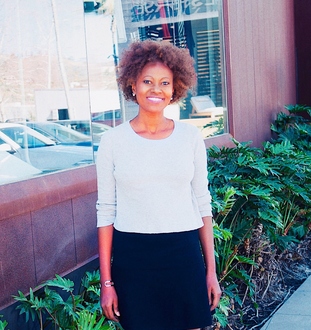.jpg)


